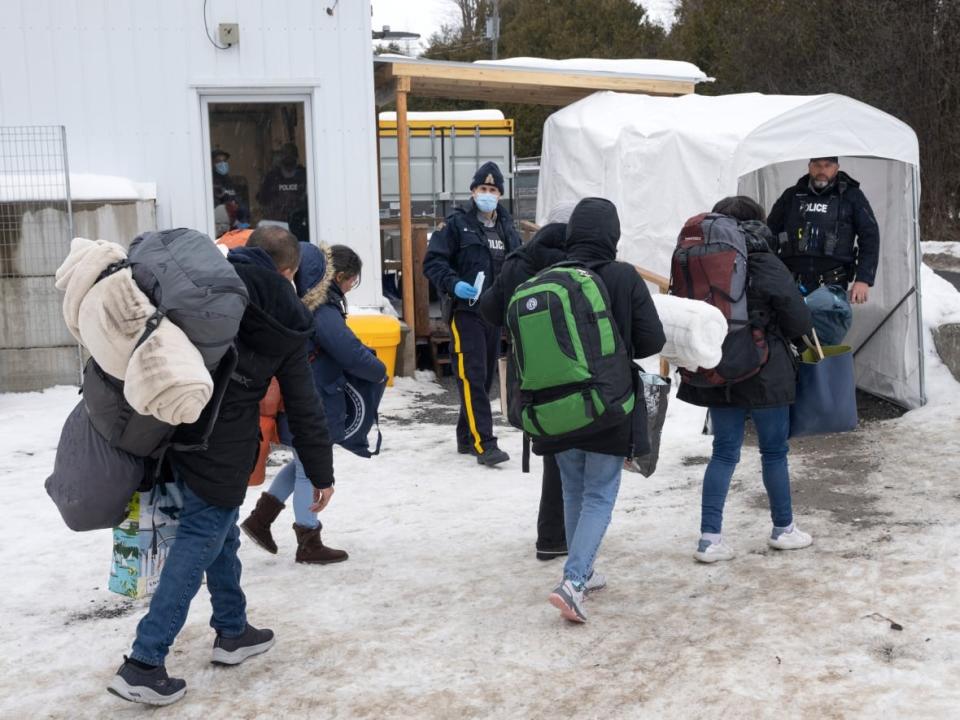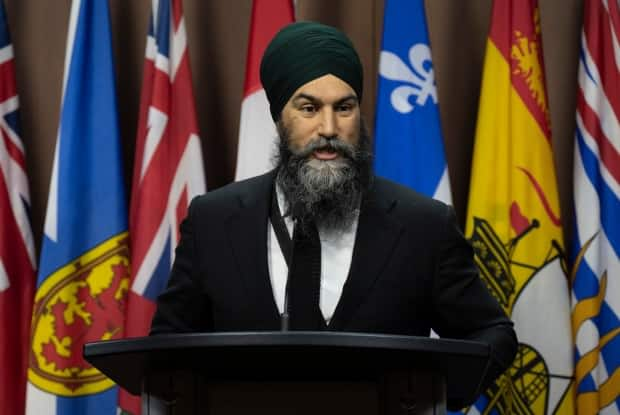After years of stalled talks, Canada and U.S. reach border deal on irregular migrants: sources

The Trudeau government has reached a long-discussed deal with the United States on irregular migration which will allow Ottawa to close the Roxham Road irregular crossing at the Canada-U.S. border, sources told CBC News.
The deal would see Canada announce openings for 15,000 migrants from the Western Hemisphere to apply to enter the country legally, a senior source with knowledge of the agreement told CBC News. Radio-Canada was first to report the deal. The Los Angeles Times was the first to report the number of migrants.
The deal comes in the form of a change to how the Safe Third Country Agreement between Canada and the United States is applied. It would close a loophole in the agreement, which came into force in 2004 and currently prevents Canadian law enforcement from turning back asylum seekers who enter Canada from the United States at border locations that are not official ports of entry.
The change would apply across the entire Canada-United States border and would allow both countries to turn back asylum seekers at unofficial border crossings.
The source said the agreement is expected to be announced publicly Friday.
Progress on a new border agreement between the two countries accelerated in the run-up to U.S. President Joe Biden's first official visit to Canada, the source added. Biden arrives in Ottawa Thursday and departs late on Friday.
The official said they would not have predicted the deal a few weeks ago.
"I would've said, 'No way,'" they said.
Several officials involved in the discussions had said talks had been lagging for months. The United States previously had not deemed a border deal with Canada a priority as it managed a migration surge on its southern border.
The deal could take effect quickly after its announcement because changes to the agreement do not have to go through the United States Congress, and could instead come through an executive order.
The status of the agreement became a lingering source of tension between Ottawa and Washington because of an influx of asylum seekers entering Canada through Roxham Road, which is on the Quebec-New York border about 50 km south of Montreal.
The Safe Third Country Agreement prevents people from claiming asylum in Canada if they enter Canada from the U.S. at an official land border crossing. The idea is that asylum seekers should make their claims in the first safe country they can reach.
Asylum seekers have been able to have their appeals heard in Canada if they've entered at an unofficial crossing, such as Roxham.
"I think it's good news. I know you'd like to know more. You will be knowing more quite soon from my colleagues and the prime minister," Health Minister Jean-Yves Duclos told reporters Thursday.
Opposition parties and the Quebec government have pressured the Trudeau government on Roxham Road. Both Conservative Leader Pierre Poilievre and Quebec Premier François Legault have called for the irregular border crossing's closure following a spike in asylum seekers this year. Legault said the number of asylum seekers has put a strain on his province's social services.
Nearly two-thirds of asylum claims in Canada in 2022 were made in Quebec, according to government data. Almost 40,000 asylum seekers crossed the border from Roxham Road that year. The migrants were primarily from Haiti, Turkey, Colombia, Chile, Pakistan and Venezuela.
Trudeau said last month that the only way to shut down Roxham is to renegotiate the Safe Third Country Agreement. But United States Ambassador David Cohen said that would do little to address irregular migration.
Sources told Radio-Canada that Foreign Affairs Minister Mélanie Joly and Immigration, Refugees and Citizenship Minister Sean Fraser have worked behind the scenes with their American counterparts in recent weeks to reach a deal.
New York City has paid for bus tickets to send asylum seekers through to Plattsburgh, New York, which is close to Roxham Road.
The NDP has called for the suspension of the Safe Third Country Agreement.
Speaking to reporters on Thursday, NDP Leader Jagmeet Singh said he'd still like to see that happen. He said he doesn't know the details of the Roxham deal.
"If the solution solves the problem, it's something we're open to," he said. "Our preferred option is still to suspend the agreement, but we're open to other solutions."

The term "irregular" is used because it's against the law to enter Canada anywhere other than an official port of entry, but it is not illegal to make an asylum claim.
Migrants claiming asylum after entering Canada illegally are generally not prosecuted while their claims are assessed.
Marie Saintil, an Ontario-based lawyer who works with Roxham Road migrants, said news of the deal doesn't surprise her.
"It will make a difference. It will immediately reduce the flow," she said.
"I worry it could result in more human traffickers."
Saintil said migrants are often fleeing political persecution and gang and domestic violence.
"They will do what they need to do to survive. For them and their family," Saintil said.
"I find it very troubling that this has been politicized, instead of trying to focus on helping these people in whatever way we can."

